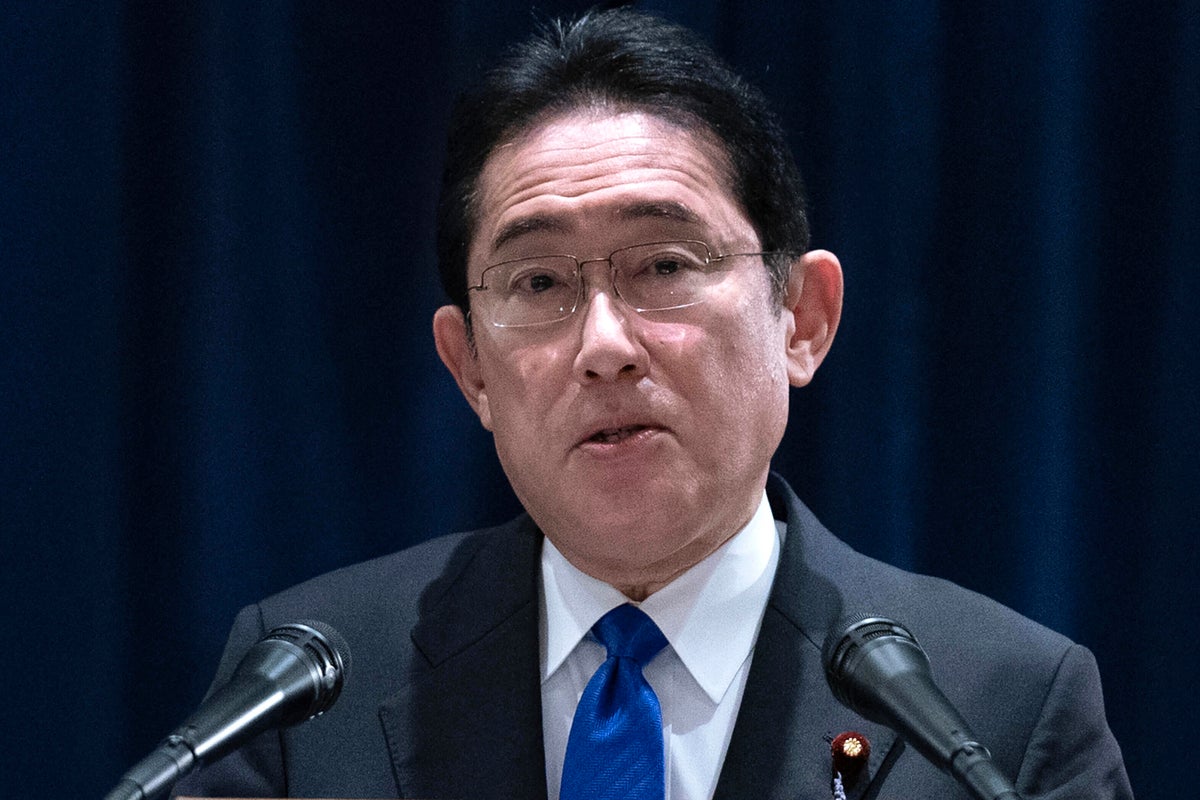
Growing worry over Chinese threats has led to a major Japanese boost in military spending, defense partnerships and aid packages, a concerted new effort to draw like-minded Asian nations into a stronger, unified front as Beijing seeks to establish regional dominance.
This security shift will be highlighted during a visit to Tokyo starting Wednesday of President Ferdinand Marcos Jr. of the Philippines, a mutual U.S. ally that Japan has increasingly developed defense ties with in recent years.
Japan says the aggressive new policy is needed to confront China, but critics call it an attempt to use massive aid infusions to push Japanese security views on poorer countries.
Marcos' visit comes just days after he and U.S. Secretary of Defense Lloyd Austin agreed to allow U.S. troops access to four more bases in the Southeast Asian nation as they seek to deter China.
More U.S. troops stationed at Philippine military camps would allow Washington to keep in check China's territorial ambitions in the disputed South China Sea and against self-governing Taiwan, which Beijing claims as its territory that must be brought under its control, by force if necessary.
Japan is looking to deepen cooperation with the Philippines and Washington, with a focus on a possible conflict over Taiwan. An existing partnership among Tokyo, Seoul and Washington primarily deals with North Korea’s missile and nuclear threats.
During Marcos’ Tokyo visit, Japanese and Filipino defense officials expect to sign an agreement that would allow Japanese forces to provide more training and humanitarian and disaster assistance to the Philippines.
”This is a significant strategic reshuffling,” U.S. Ambassador to Japan Rahm Emanuel said last week, referring to U.S.-Japan-Philippine defense ties. It “would be a major contribution to the strategic alignment in the area from a deterrence standpoint.”
Japanese Prime Minister Fumio Kishida’s government in December adopted key security and defense upgrades, including a counterstrike capability that breaks from the country’s self-defense-only postwar principle. Japan also plans to double its defense spending in five years.
Under the new strategy, Japan will use its development assistance to support poorer nations as they strengthen their maritime safety and other security capabilities. It's meant to counter China’s growing regional influence.
Foreign Minister Yoshimasa Hayashi calls it "indispensable for Japan to not only fundamentally reinforce its own defense power but also to improve the deterrence capability of like-minded countries” and prevent one-sided changes to the status quo.
For starters, the Foreign Ministry in April 2023 will get 2 billion yen ($15.2 million) to help strengthen national security of the “like-minded” countries. The money is primarily for Indo-Pacific militaries and separate from the 442 billion yen ($3.35 billion) in development money that the ministry says is not to fund weapons.
But Japan's development work is also seen as shifting focus on maritime and economic security and national interests.
Kishida and Marcos are expected to issue a joint statement that includes Japan’s pledge to provide 600 billion yen ($4.5 billion) in development aid through 2024, most of it meant to speed up infrastructure, disaster prevention and information technology improvements.
The assistance could include several Japanese patrol boats to help strengthen the Philippine coast guard against growing Chinese naval activity in the South China Sea, according to Japanese and Philippine media.
Japan has aggressively supported building up coast guards in Southeast Asia that are in conflict with China and has provided 12 patrol boats to the Philippines and nine to Vietnam.
The Philippines, Brunei, Malaysia and Vietnam, along with Taiwan, have been locked in increasingly tense territorial disputes with China in the South China Sea. The United States has been regarded as a crucial counterweight to China's militarization of island outposts and has pledged to come to the defense of the Philippines if its forces, ships or aircraft come under attack in the contested waters.
The new Japanese Foreign Ministry budget is primarily for the militaries of developing nations in the Indo-Pacific region and is likely to be used to provide Japanese-made non-lethal equipment like radars, antennas, small patrol boats or infrastructure improvements, rather than advanced weapons.
Japan also wants to strengthen its feeble arms industry. The Defense Ministry has been virtually the only customer and export is limited to non-lethal weapons. The government wants to further ease restrictions on weapons and technology transfers.
Military funding and traditional non-military development aid come from separate channels but are used like “wheels on both sides of a car," according to Masaki Inaba, co-chair of the Africa Japan Forum and an expert on foreign aid.
“Funding will be used to gain more friends, and based on how it would contribute to Japan’s own interests rather than development needs of the recipients,” Inaba said.
The shift could hurt the respect Japan has earned from the “global south” developing nations as a donor with pacifist principles, different from other advanced Western powers, when the country needs greater support from them, he said.
Japan’s more security-focused aid policy could be also seen with wariness by China and the Koreas, experts say.
Japan, where arms sales were long restricted, has lagged behind in the Asian market, and the government hopes to cultivate customers by providing Japanese-made equipment, such as popular Mitsubishi radars.
Many Southeast Asian nations, including the Philippines, may be eager to balance their relationships with both Japan and China, while trying to get more from both, experts say, so Japan should be careful not to put them on the spot as they build ties.
Some in Japan have been critical.
“When defense equipment is directly provided to militaries of recipient countries, there will be a greater risk of inappropriate use than today. There is no guarantee that monitoring by the Foreign Ministry will function adequately,” the Weekly Toyo Keizai magazine said in a recent commentary.







